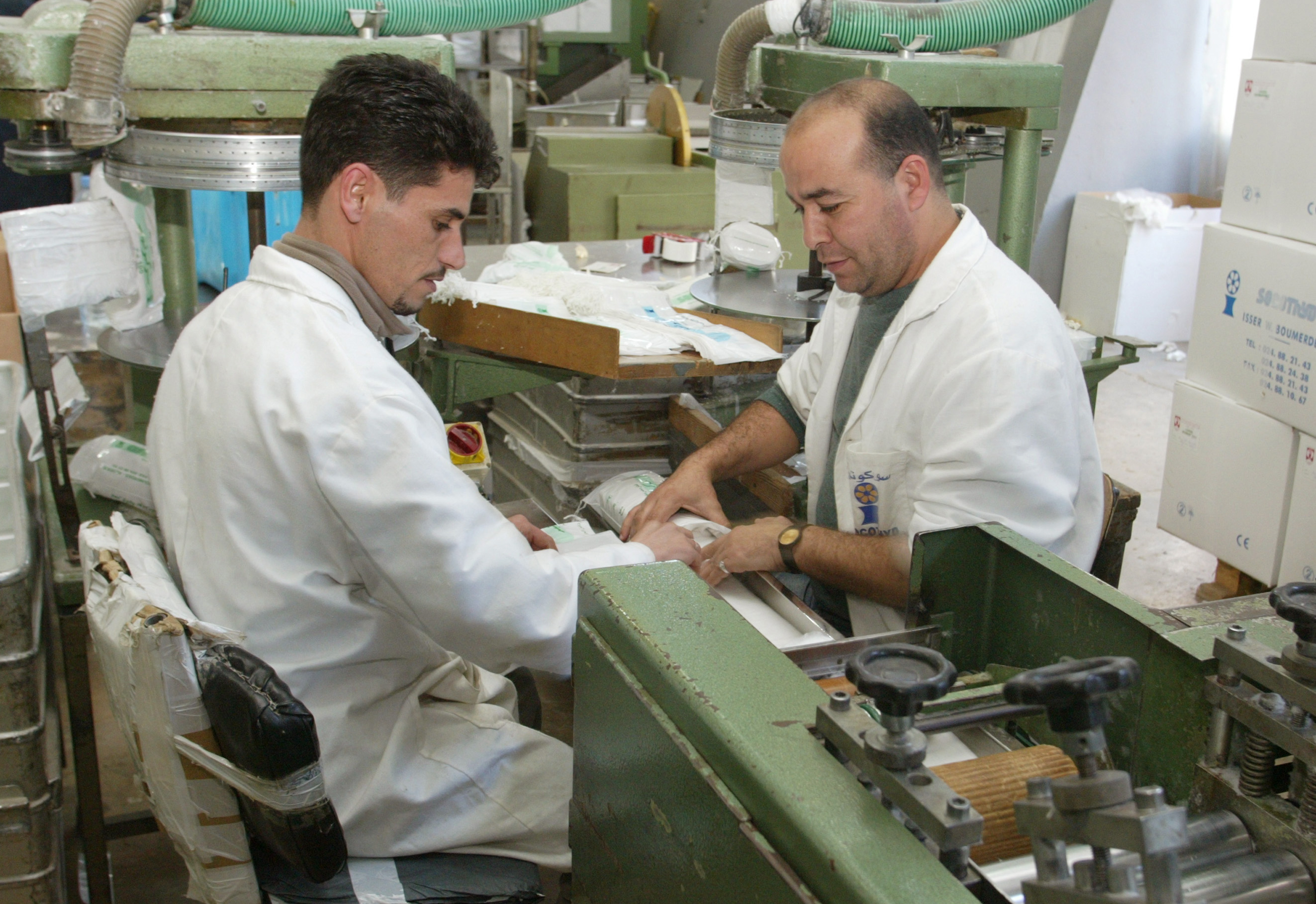Core area “Sustainable economic development, training and employment” Creating jobs, promoting employment and enhancing competitiveness
Promotion of small and medium-sized enterprises and start-ups
Micro, small and medium enterprises (MSMEs) are considered a strong driving force for development. Algeria has an agile start-up scene. German-Algerian cooperation provides targeted support to MSMEs. To that end, GIZ – on behalf of the Federal Ministry for Economic Cooperation and Development (BMZ) – is working together with enterprises, business federations, government institutions, the German-Algerian Chamber of Industry and Commerce and the newly established agency for the development and promotion of SMEs. Tailor-made services and advice programmes are used to help enterprises, among other things, to improve their management, use inputs more efficiently and in an environmentally sounder way, develop new products, and enter new markets within the country and abroad. Efforts focus in particular on female entrepreneurship and on entrepreneurship in green and innovative sectors and in the circular economy.
Employment promotion
So far, the graduates of vocational schools and higher education institutions are faced with unemployment notwithstanding their qualifications, as these often do not match the needs of the labour market. Germany's interventions are geared towards improving employability in certain occupations that are related to energy efficiency and energy management.
The BMZ also fosters dialogue between the government and the private sector, and it supports both the development of practice-oriented, labour-market oriented dual vocational training, short-term measures for young job-seekers, programmes to empower women and in-service training courses for teachers.
As part of its regional programmes, the BMZ supports the Institute of Water and Energy Sciences (External link) (including Climate Change) of the Pan-African University. There are international master programmes for experts in the fields of water technology, water policy, energy technology and energy policy. Furthermore, support has been provided for the creation of a business incubator for promoting innovative projects by students and alumni.
As at: 28/03/2024
